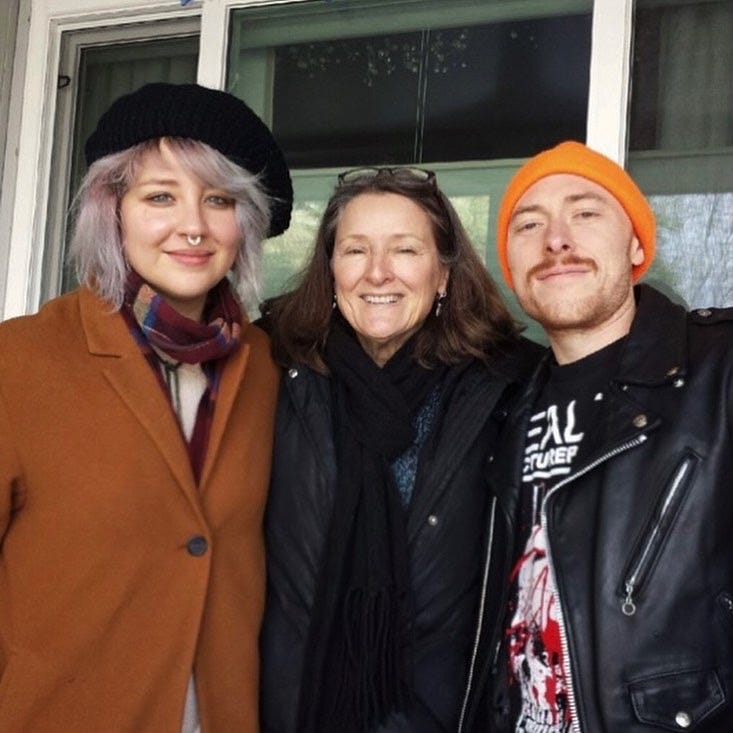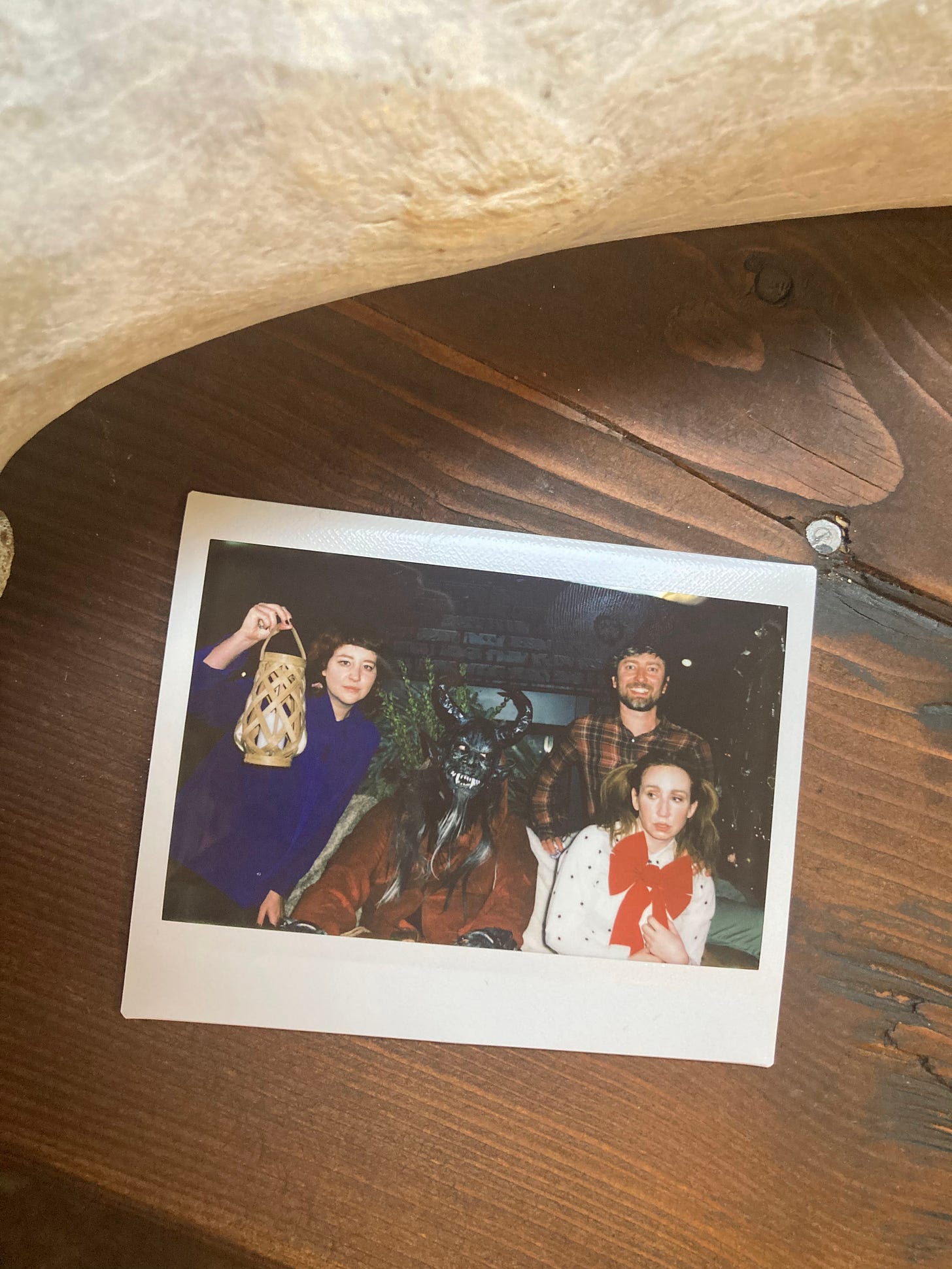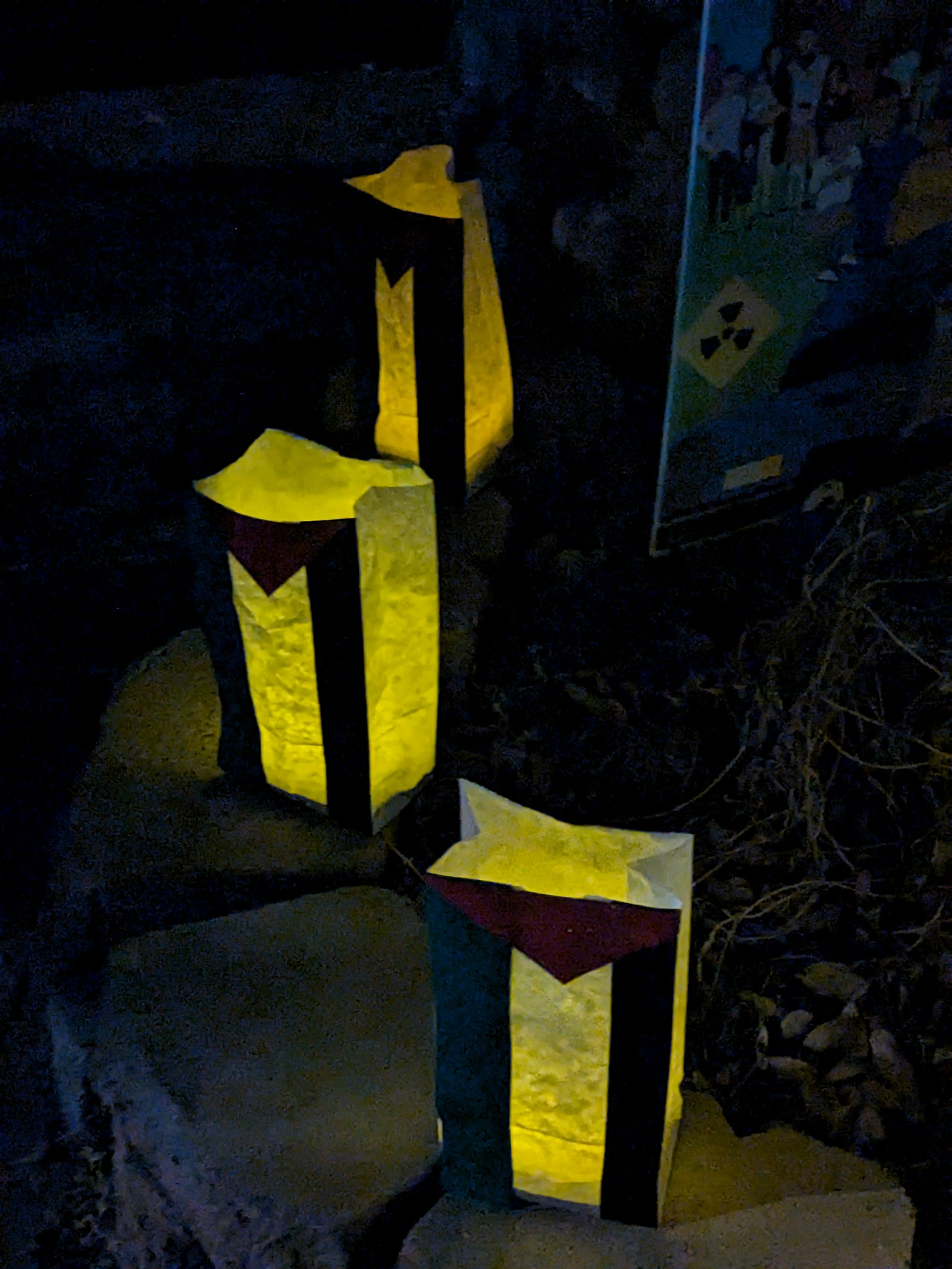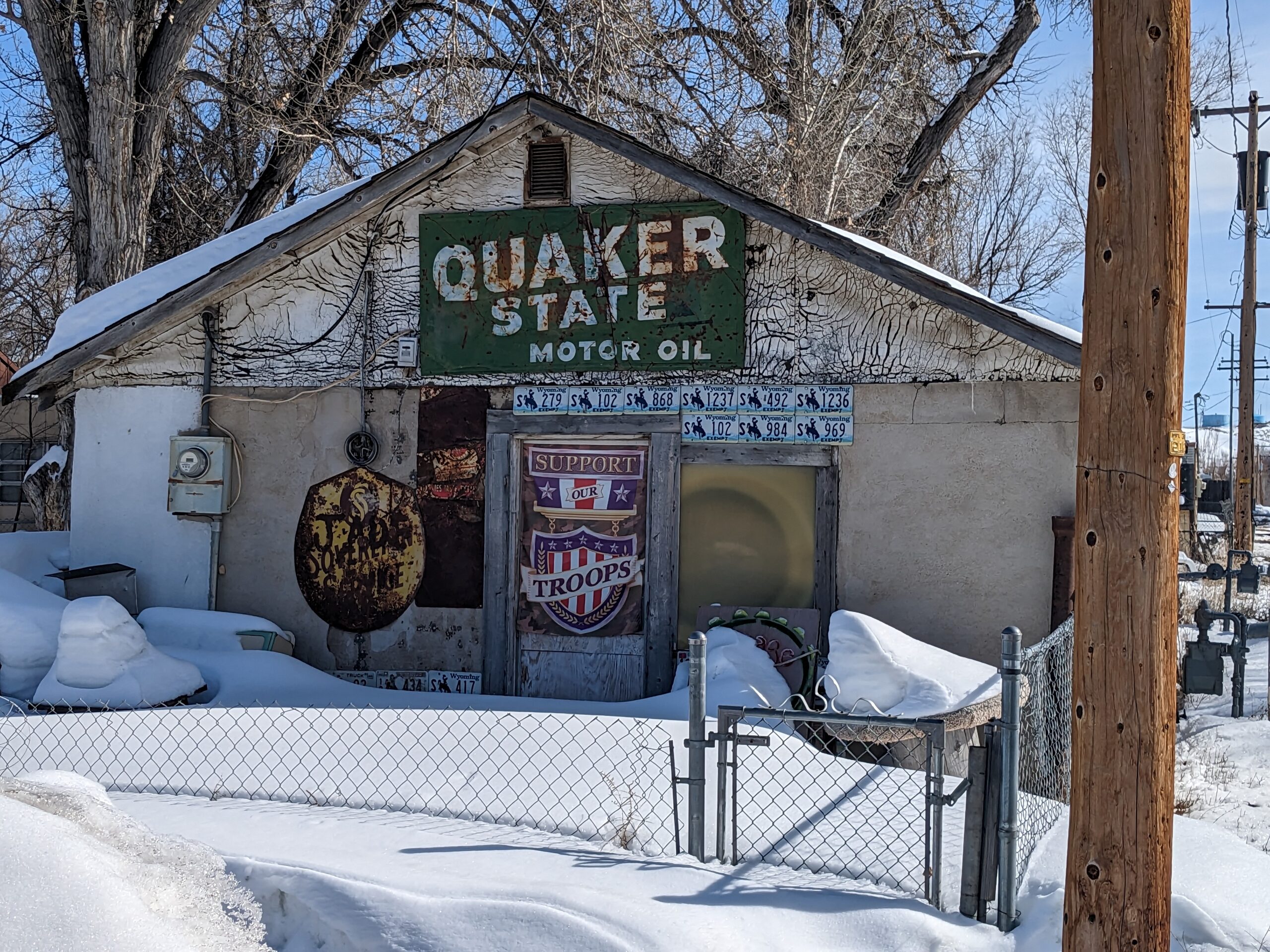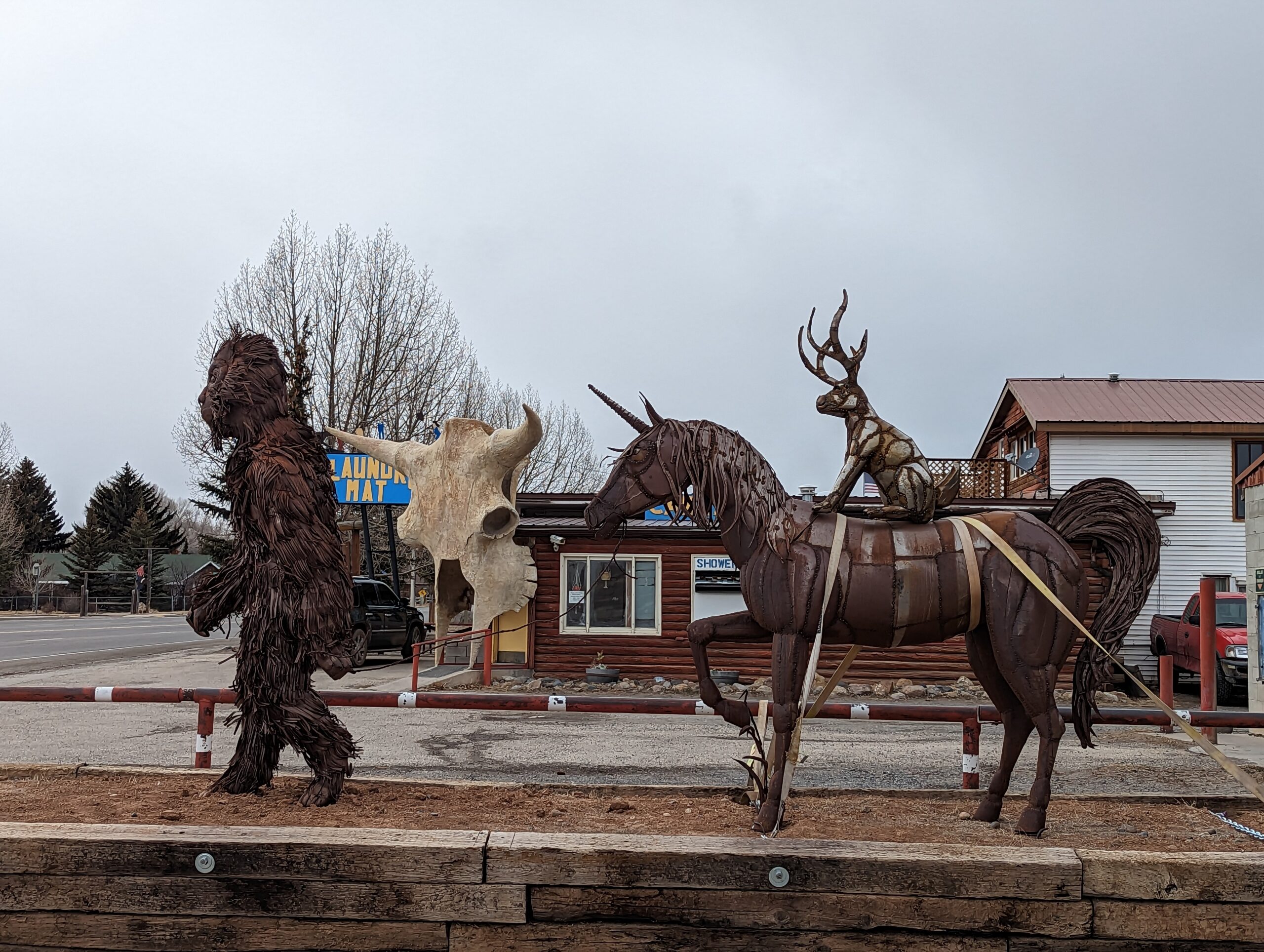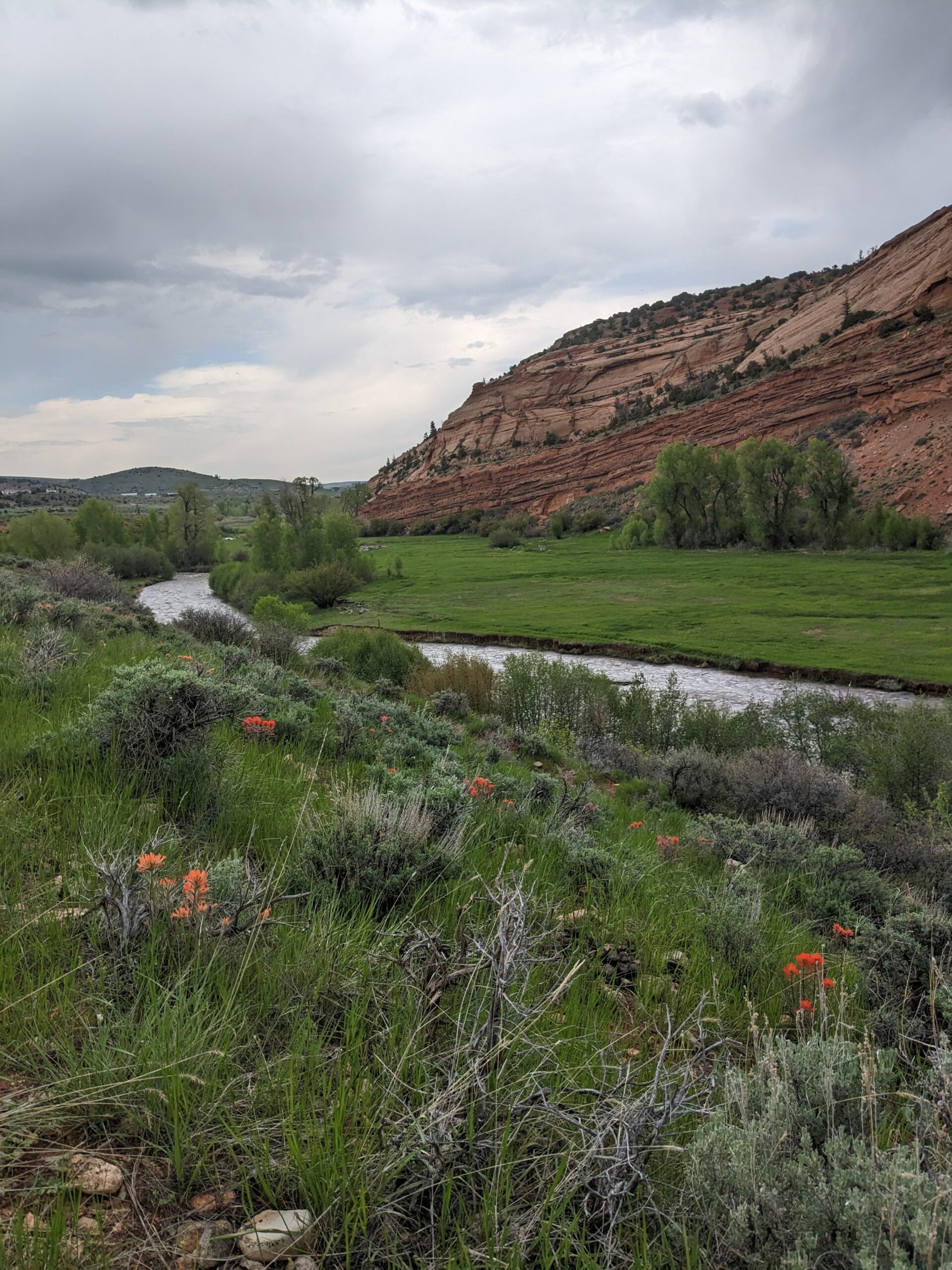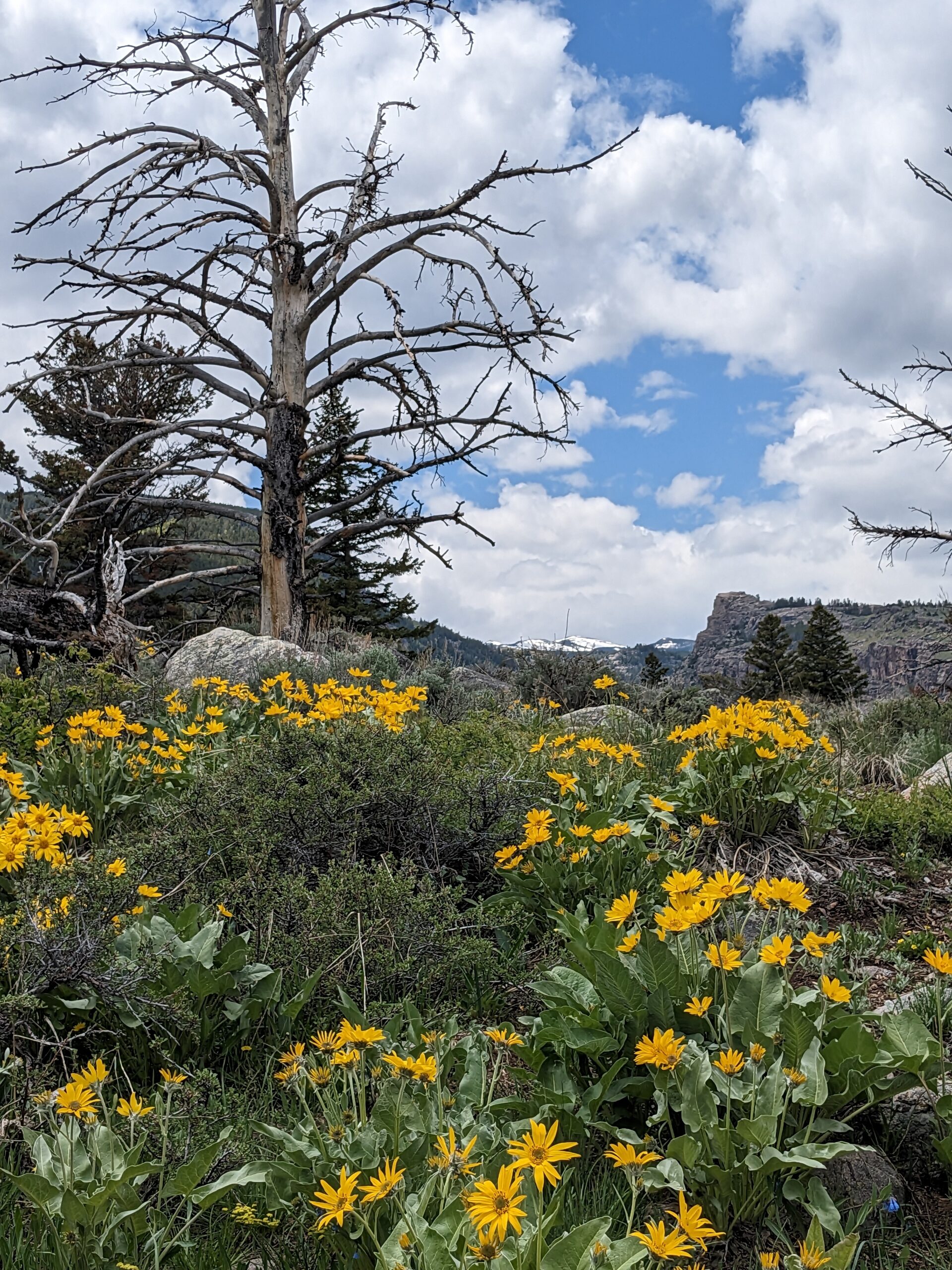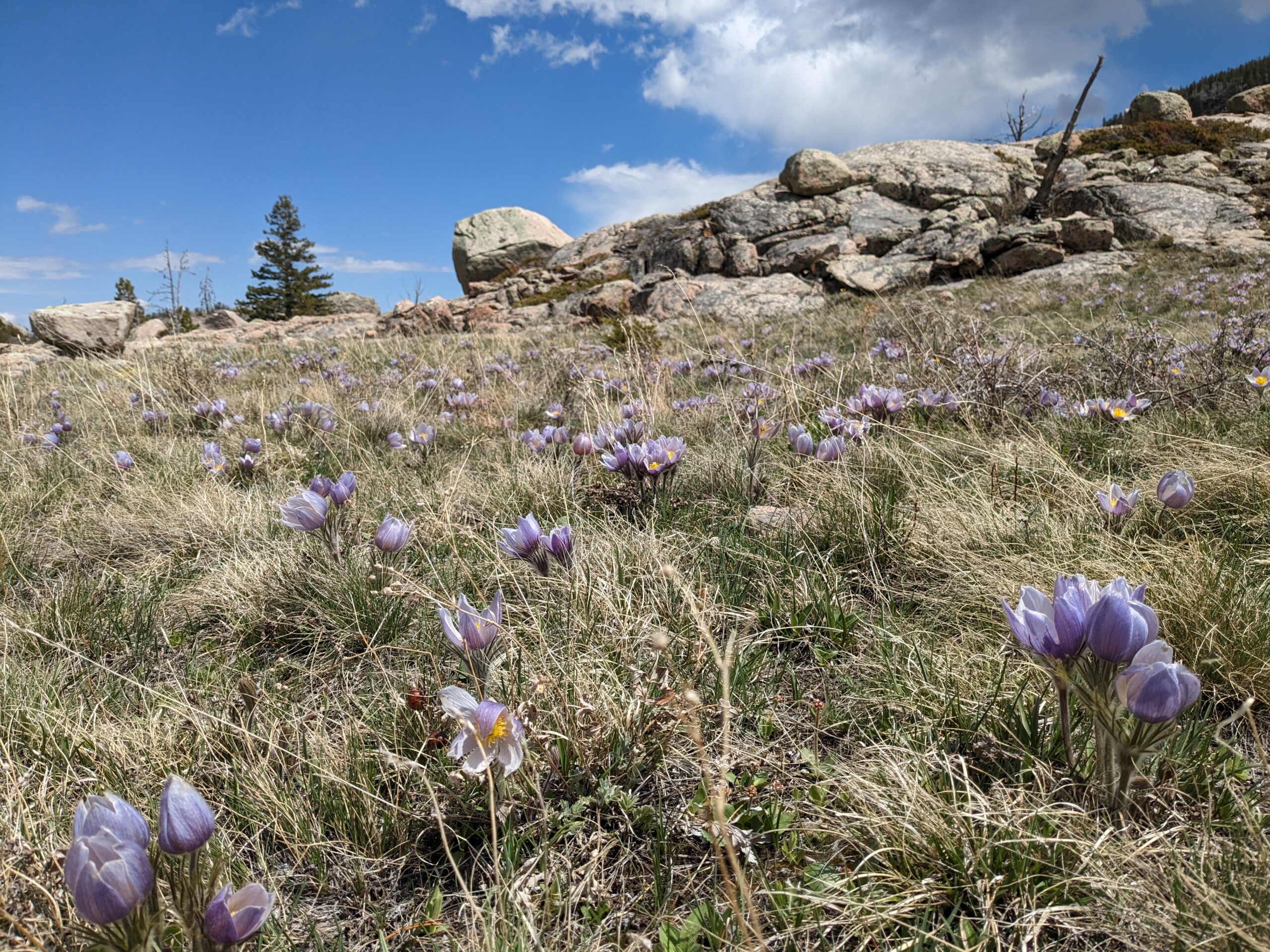Thoughts about Pregnancy, Disability, and Loss

This post was originally posted on my Substack on May 29, 2025.
For weeks, I have been trying to write this account before my mind and body grow too distant from the physical and emotional shock I endured trying to get and stay pregnant. To tell this story, I first have to admit to you that I was indeed trying to get pregnant and that I wanted to be a parent despite these sick, apocalyptic times. It’s a hard thing to own up to, especially since so many of my friends are childless millennials who exchange memes about how awesome it is to remain childless and protest the ethnofascist Trump administration, which is pushing a pro-natalist, fascist “hero mother” agenda.
Although I was never formally diagnosed, I had hyperemesis gravidarum (HG), an allergy to the pregnancy hormone that forced me to end my pregnancy in its twelfth week. I want to tell you all about it because, despite being a condition that has affected women for centuries, it is very little researched and discussed.
I am also compelled to write about it because, despite being a feminist with a strong sense of self who believes in an individual’s right to stay pregnant or not for any reason, I irrationally feel like I have to justify my abortion.
This writing isn’t a finished or polished essay. It is more of an outline for something that might become an essay if I can ever organize my time and thoughts well enough to write it. Something about being so incredibly ill has scrambled my brain and dulled my thoughts and feelings about the incident. While you might be reading this thinking, Yes, of course you just want to relish feeling well again and move on, I’m grappling to understand why this new experience of loss and grief hasn’t fueled my creative productivity like similar experiences have in the past.
Writing about becoming disabled and therefore unable to carry out a pregnancy feels deflating and brings an all-too-familiar surge of bile up my throat. Childbirth is supposed to be natural, something women’s bodies simply know how to do. Yet, nothing about my pregnancy felt natural.
I think confronting disability for the first time in my otherwise able-bodied life is a huge part of this writing block I am experiencing. I need to contemplate this idea more, but this happening will probably continue to be the hardest part of my life to revisit and make sense of.
After so much throat clearing, let’s begin: The symptoms of HG include severe nausea and vomiting that plague a person for months. Some scholars believe HG killed the 19th-century writer Charlotte Brontë after she got married at thirty-nine (I am also thirty-nine, which isn’t as old by 21st-century standards) and became pregnant with her first child. Unable to keep down food or water, Brontë succumbed to starvation and dehydration just as her appetite was starting to return to her. Today, women still die from HG, and yet we haven’t fully concluded what causes it or how it might be prevented.
At six weeks of pregnancy, I took being constantly nauseous as a blessing because it meant that the placenta was developing normally, and the chances of miscarriage were slim. I was concerned about pregnancy loss because, at six weeks pregnant at the end of September, I lost my first pregnancy. Because of the physical pain of that miscarriage and the lack of care and compassion I received in the emergency room, I questioned if I would ever try to get pregnant again.
I couldn’t go through another miscarriage. I wouldn’t.
And yet, some women do, over and over again, because they want a child so badly. Although I wanted a baby, I never wanted one badly enough to continue to hurt myself. For this reason, my husband and I agreed that if my next pregnancy didn’t work out, we wouldn’t try again.
I know everyone is different, and we shouldn’t compare ourselves to others. However, one of the lingering outcomes of my ordeal is this unshakeable, false thought that only mothers who want it badly enough get to have children. It doesn’t matter how ridiculous this sounds. It is a reflection of how deeply I am feeling the stigma of being an objectively healthy woman who cannot give birth.
When my body healed quickly after my first pregnancy loss, my mind soon forgot everything, too. I began tracking my ovulation again, went to acupuncture, and promptly got pregnant for a second time. So, as uncomfortable as I found myself in my second pregnancy once the nausea kicked in, I also felt like I was finally having a “normal” one.
At first, it didn’t occur to me that I wasn’t tackling morning sickness. Although I heard that some women stay sick for their entire pregnancies, I had hoped this wouldn’t be the case for me. Plus, I had never heard of HG, so I didn’t know to fear it.
Different from HG, morning sickness is mild to moderate nausea that peaks around weeks eight through ten before tapering off. Many women experience morning sickness, but some women don’t. The fact that these lucky women exist makes me question the rationale my pregnancy app provided that morning sickness evolved to help women detect toxins in foods and therefore protect themselves and their fetuses. Nausea during pregnancy seems to me to be an evolutionary fluke that modern medicine should be able to circumvent by now. There’s no reason why all pregnancies shouldn’t be easy and comfortable, shouldn’t feel “natural.”
The severity of my nausea came on slowly, but even in its mildest version, I couldn’t wait for it to go away. Before my first appointment with my OB, I called the clinic asking if I could be prescribed anti-nausea medication because all of the tips and tricks my pregnancy app suggested—B6, Unisom, acupressure, acupuncture, a bland diet, ginger, etc.— were not working.
“You look so tired,” my OB told me on my first appointment with her, around week seven. “It’s hard to grow a human, isn’t it?”
“This is just what pregnancy is like,” a doctor told me at an urgent care clinic I went to, seeking IV hydration around week eight. The clinic didn’t provide IVs, though. Instead, I was directed to the ER where, with insurance, an IV would cost upwards of 500 dollars. So, I checked myself into one of those med spa IV bars for people with hangovers. If I hadn’t, I would have had to wait two more weeks for my insurance to approve a special IV clinic for me to go to.
At one of my IV bar appointments, the nurse who attended to me shared how awful her nausea was for both of her pregnancies. “The first one was bad, and the second one was worse,” she said. “But you get through it. You’re strong, you can do it.”
This is a refrain I would hear again and again as I collected stories from the mothers I met while I was pregnant: “You will get through it.” And the proof was evident—these women had lived to tell the tale.
Now that I didn’t get through it, that I didn’t end up with a baby like these women who certainly had HG, too, I can’t help but feel like a failure. Even if they had been ignorant of HG and the risks it poses, they were able to ignore all of the alarm bells going off in their bodies; they were able to sacrifice everything to bring life into the world. So the question still pesters me: Is there something wrong with not being one of those women who want a baby so badly that she would torture herself for it or even die?
I know the answer is “no.” But one of the reasons I want to give this account is to defend myself against the non-existent critics, the ones I’ve only imagined and haven’t encountered, who are telling me that I did something wrong. And even though I haven’t met these attackers, I know they give voice to a general social gaze under which we are all socialized to recognize and adhere to normative gender expectations, in this case, the normative behavior of the self-sacrificing, motherly woman.
Unlike morning sickness, HG gets worse and worse. Sometimes it goes away in the second trimester, around week twenty. Sometimes it lasts the whole pregnancy, not ending until the placenta leaves the body (the evil, alien organ that pumps out the pregnancy hormone).
For a month and a half, everything made me sick. Smells, tastes, movement, touch, light, dark, sounds—anything stimulating. I couldn’t walk or be driven without feeling queasy. I needed fresh air, but I couldn’t handle the sun. I felt isolated, but I hated being around people. I needed to wash my hair, but the sensation of the water hitting me from the showerhead was unbearable. I would cry, usually into a bowl of oatmeal I was forcing myself to eat before I threw it up, and feel more sick. I would stop myself from laughing. I wasn’t permitted emotions, but I couldn’t turn them off either.
My husband moved into a different room, and, as much as I craved to be taken into his arms, I wouldn’t let him near me. No one and nothing could comfort me.
I stopped going to community college classes I was taking in Santa Fe with a month remaining in the semester. I quit my part-time job. I became bedridden and had to ask my mother to come from Wyoming to help take care of me.
I lost nearly twenty pounds. Even when I could keep food and water down, I had a strong aversion to both and was forced to be anorexic. In the morning, it took me three hours to eat a frozen waffle. Most days, though, I subsisted on a slice of watermelon and a tangerine. It is going to take me a while to be able to stomach fruit again since citrus was one of the only tastes I found somewhat palatable.
In some cruel twist of evolutionary biology, my sense of smell was ramped up to 1000%. If I had been afflicted with food cravings, this super sense would have been awesome. Being sick, though, it made everything less appetizing. The smell of my own body or the taste of my own saliva often had me running to the bathroom.
By week eight, I was getting IVs for hydration. Although I was on anti-nausea meds around the clock, they would wear off in the middle of the night, waking me up to a fit of vomiting that I couldn’t stop for hours. I was neither sleeping nor able to rest. There was nothing I could do to heal or nourish myself.
One night, when I couldn’t stop vomiting, my nose started bleeding. Another night, I had to wake up my husband (who wasn’t able to sleep through my retching anyway) to remove a giant cockroach from the toilet seat before I could continue being sick. After that occurrence, I lay in bed waiting for the next round to begin and said out loud, “If I’m supposed to keep this pregnancy, give me a sign.”
I knew a sign wouldn’t come, especially if I didn’t specify what the sign should be. Because I didn’t specify, everything became an ambivalent symbol that could be interpreted as either for or against keeping my pregnancy.
If I had owned a Magic 8 ball, I might have considered using it, but I would have been too weak to shake it.
The next morning, sick of being sick, I had my mother take me to a hotel bar with outdoor seating in a lavender garden overlooking the Sandia Mountains. At the bar, scrutinizing the zero-proof menu for something that might let me taste it, a woman was having brunch with another woman, discussing her nausea. I butted into their conversation, asking the woman if she was pregnant.
“No,” she said, “But I had the worst nausea during my pregnancy.” She told me a familiar HG tale: she lost weight, subsisted on crackers, and didn’t get well until her delivery day. “People always ask me why I only had one child, and that’s why. I couldn’t do that again,” she said.
When I told her that I was pregnant and struggling, she said, “I wish I could give you some advice. But don’t worry, you’ll get through it.”
In that moment, I realized I didn’t want to get through it. When I had asked for a sign the night before, I had already begun talking myself into terminating my pregnancy. My aversion to this woman’s story about powering through the worst experience I could imagine—an experience I was already living—cemented my resolve, and I took this feeling as my sign.
I wrote a message to my medical team on the MyChart app, telling them I wanted to know about my options to end my pregnancy. They tried to convince me to use a Zofran pump (like an insulin pump but for anti-nausea meds) and go into the IV clinic twice a week, both of which my insurance had just approved.
Despite their encouragement, they couldn’t assure me that I would feel better any time soon. My symptoms could last, and get worse, for a few more weeks or another six months. At that point, I couldn’t take even one more day.
I also didn’t want to have to get poked with needles anymore. My intuition told me I was on track for hospitalization and a feeding tube, which would have led to my complete mental undoing.
Plus, the longer I put it off, the harder it would be to end it. The fetus would continue to grow, its heart would keep beating, and I would feel more invested in delivering it—if I didn’t, what would all of my suffering have been for? And yet, no one could guarantee that I or the fetus would survive this trial.
My medical team never diagnosed me with HG—I came to this conclusion through independent research and validation from friends in the medical field. My medical team never warned me about the toll HG would take on me and could take on my unborn baby. They never told me that HG leads to psychological and behavioral problems in children—like autism, depression, and bipolar disorder—and PTSD and anxiety disorders in mothers, along with sepsis, starvation, and death.
Even though we live in a blue state, they never mentioned the word “abortion.” They only said, “Let’s try a drug called Phenergan if the Zofran isn’t working. Now, do you want to hear the baby’s heartbeat?” I had to be brave enough to think of other possibilities without guidance or reassurance.
Unbelievably, only five percent of people with HG end their pregnancies. They endure hospitalization and feeding tubes and emergency C-sections because they are too weak to give birth. I’ve read accounts where people with HG contemplate suicide over abortion because they don’t consider abortion an option. Some women, like Jessica Cronshaw in Texas, where abortion laws are very strict, do end up committing suicide.
I was throwing up uncontrollably in the waiting room the day I went to the women’s clinic for the procedure. They gave me Zofran and promised to take good care of me. In fact, they provided me with the best care I received through this whole nightmare. They even got me funding, so I didn’t have to pay a cent. I paid so much more and received much less quality care for my miscarriage.
As soon as the procedure was over, I was able to eat and drink. The relief was instantaneous. I can’t adequately explain the torture of being endlessly nauseous. Unrelenting pain would have been much preferred.
Physically, I am recovering quickly. My muscles have atrophied, and I get sore after walking around the block. However, I am slowly building back strength and muscle.
I think my brain atrophied a little, too, since I also gave up writing, learning, and thinking while I was in a state in which it was impossible to do anything but agonize and feel sorry for myself.
Emotionally, I am going to be unwell for a while.
Right now, I am so angry that a pregnancy without suffering and loss is unavailable to many of us. In a recent NPR story, I learned that doctors will—for the first time—be required to administer pain-reducing drugs to women who get IUDs inserted and parts of their uterus biopsied. For decades, women, including me, have undergone these painful procedures without any pain alleviation. To this end, it shouldn’t surprise anyone that we don’t care about women suffering in pregnancy either.
A few days after my procedure, I went on a brief vacation to a scenic town near Albuquerque with a Spanish colonial church. The church is known for its healing dirt, which I have never believed in. My father had been a believer, though. Even so, the magic dirt didn’t postpone his early death due to lung cancer. When my family cleaned out his car after he passed, we found a satchel of dirt and a bottle of holy water in the glove compartment.
In the entryway of the church, I saw a plaque dedicated to the lives lost from abortion. Obviously this was triggering. Obviously such ignorant mourning of the non-life of an aborted embryo erases and devalues the very obvious living-breathing life of the mother.
Interestingly, the plaque didn’t trigger anger toward my father. One thing I can say in his favor is that he was a progressive Catholic who stood by abortion. To this end, I also felt a rare sense of pride in that moment.

I wish I could share with the Knights of Columbus, who dedicated this plaque, as well as all anti-abortionists, a copy of the journal I flipped through in the recovery room at the women’s clinic. Every story was from a person who did not want to end their pregnancy. They wrote about babies whose hearts stopped beating in their wombs. They apologized to their unborn children, asking them to wait for them, to hold out for a time in their lives when they could provide them a good life. They reiterated again and again that they never wanted to make this decision in the first place.
So now I have become another woman who feels obligated to defend her choices, even when it didn’t seem like she had any.
I am also dealing with the realization that I have no control over my body or my future. I knew this already, but when you identify as able-bodied and socially privileged, you delude yourself into thinking that you have more control than other people. The truth is, there is no division between those with control and those without it. I am just another woman testifying that she is out of control.
Thanks for reading. To stay current with all of my writing, subscribe to my Substack here.



